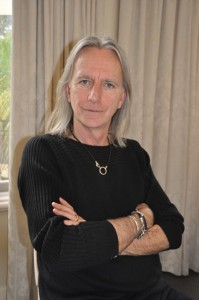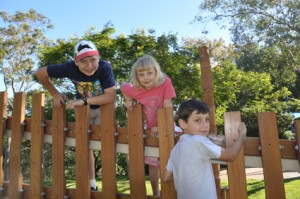
Scott Hicks in Adelaide to edit “Fallen”
Oscar-winning Welsh actor, Anthony Hopkins can be “really stroppy’’, Clive Owen brings “a laugh onto the movie set’’, and Catherine Zeta-Jones is “so unpretentious’’, says renowned Australian film maker and screenwriter, Scott Hicks.
These titillating snippets were among tales of Hollywood stars from Hicks in an entertaining Q & A with Dr Nick Prescott at a fundraiser for the Women’s and Children’s Hospital held at the Belair Country Club yesterday (Monday June 23).
However, before the packed audience, Hicks was quick to qualify his quips:
“Anthony Hopkins is a lovely man, and extravagantly talented, but he does have a dark side,’’ he said.
And he heaped layers of praise on Catherine Zeta-Jones, whose skills as a dancer were a bonus on the movie set.
“She is such a hard worker; so unpretentious in her manner and carries no airs and graces,’’ Hicks said.
“She is a real trooper on set, that “roll up your sleeves and get on with it’’, personality.’’
The Oscar-winning film, Shine, had taken Hicks 10 years to bring to the screen, but he believed passionately both in the story of David Helfcott and that unknown theatre actor at the time, Geoffrey Rush was the ideal actor to play him.
But the American studios were not impressed.
“Nobody was interested in making this film; they thought David was a crazy pianist, but he is an extraordinary personality,’’ he said.
Imitating the scenario with an American accent, Hicks recounted the Americans’ reaction.
“Geoffrey Rush was a huge obstacle, because in America they said: “Who is he?’’
“I replied “he is very busy theatre actor,’’ but he has never made a movie.’’
“Then they said “Forty three years old: What kind of failure hasn’t had a film before 43?’’
Hicks believed his “basic element’’ to take actors seriously and tune into them was one of the keys to his successful film-making.
“I have seen a lot of other directors get very bound up with the technology and become removed from the actors,’’ he said.
“I am not hidden behind a big bank of cameras. I am sitting by the main camera watching the actor, even their body language, so they can get feedback on what they have done.
“They get lost in their own world and someone says “cut” and it becomes as if they didn’t exist.
“But with Geoffrey Rush, you say “cut’’ and instantly he is simply Geoffrey.’’
Hicks believed his own experience at acting at Flinders University gave him empathy and respect for actors.
“I found out very soon that I was not an actor, but there were 10 seconds when I got the feel of what it would be like to be in front of the camera,’’ he said.
“I was playing Rupert Murdoch and for my sins I had to sing a song, too.
“It was the one only performance and there was a moment where I actually totally believed what I was doing and it came out as if I was made for it. It quickly evaporated, but in that 10 seconds I understood that is how an actor feels.’’
He said it was “such a precious gift’’ to expose yourself in emotion by being an actor.
Making films was a curious medium. “Film-makers forget that they do have to surprise and delight the audiences..give them that light at the end of the tunnel.
“You want your mind agitated and your emotions activated. People want to take away something that lifts their lives.’’
There were local stories too about young actor Harrison Gilbertson whom he has cast in his latest project – Fallen , a Gothic supernatural romance, the first of a series of four young adult movies based on novels by Lauren Kate. After filming five months in Budapest, he is back in Adelaide doing the first edit before it moves into post production in Montreal, Canada.
The audience followed his stellar career from early failures as a fledgling actor at Flinders University through an early lucky break doing a documentary with China’s Army just prior to the Tiananmen Square protests in 1989 and into feature films such as The Boys are Back and Snow Falling on Cedars.
Meanwhile, the one actor he wished he could work with was Dame Judy Dench.




